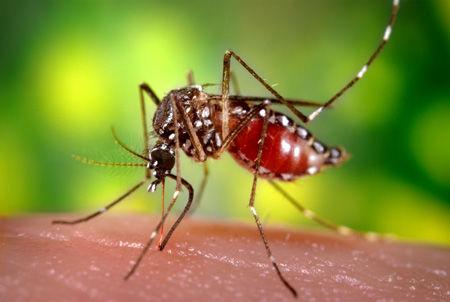(Trinidad Express) Doctors are noticing that a lot more children in the critical stage of dengue are presenting neuro-symptoms resulting in neuro-dengue.
So said Dr Joanne Paul, head of the Paediatrics Department at the Eric Williams Medical Sciences Complex, Mt Hope, on TV6’s Morning Edition programme yesterday.
Paul and Minister of Health Terrence Deyalsingh, who also appeared on the programme, are again advising the public that children are at high risk for dengue and must be closely monitored for changes in symptoms.
The minister reiterated that the fight against dengue involves both the Government and the public. He also reminded people to keep their surroundings clean and eliminate dengue breeding sources around their homes.
The number of deaths remains at five, with confirmed cases at more than 500 expected to increase, Deyalsingh said.
Paul said there are three areas people must observe—bleeding, shortness of breath, and slight stroke. However, she said the “difference is with the children, we are finding a lot more of the neuro symptoms, so therefore we call it neuro-dengue.
“So, the children in the critical phase where they are very severe, we find they are having fainting episodes, they are confused, disoriented and they might even come with fits, so that’s where the brain is affected.”
She explained further, “Once you understand the three ways of doing it, there is a fluid shifting, there is some bleeding or some organs like brain and kidney are being affected. So, children are having more neuro symptoms and in addition, the platelets count is dropping really fast with children.”
She warned that children are going from the fever phase to the critical phase really fast “and once the platelet count goes down, you start to bleed, so you have to look out for that. So, I think for parents you have to understand that young children are especially at risk… ones who have sickle cell issues… obese are at high risk of becoming severe dengue.”
Most cases:
6-20 age group
Endorsing Paul’s statements, Deyalsingh said the six-to-20 age group accounts for 78% of cases and “we have to be very concerned about the children”. He added that the most affected are between 11 and 15 years of age.
Paul noted one in ten people will get severe dengue, but stressed there are warning signs people can pay attention to. “Aside from the incubation phase, we have the fever phase that might last about seven days—you have fever, you have pain behind your eyes, headache, breakbone fever, you’re lethargic et cetera… you might vomit once… and nausea. But the significant thing about that is after that phase, you have the bad, bad, sick, sick critical phase.”
She continued: “That’s the one in ten people will get severe dengue and once you go there, it has three things that happen but before we go there, we talk about the soft signs. So, if you are going towards severe dengue signs, you might have things like abdominal pain on the right upper quadrant and that’s significant. If you divide your abdomen in to four quadrants on the upper (part) here you are going to have where the liver is, you’re looking for pain there. You might see little bit of bruising or bleeding of the gums, when you see that, that’s your soft warning sign, that you may be going into severe dengue.”
She said when one thinks about the critical phase, the second one, the severe dengue, it is three sections.
“Once you understand you know what’s happening to you. The first thing, is where the fluid shifts from your blood to another place, the wrong place so therefore it goes to your lungs, it goes to your bowels, so you get short breath because your fluid is in your lungs. And feel even worse because you’re dehydrated.
“The second thing, you might bleed because your platelets count going down; and the third thing is where your organs might be affected, so your liver, your kidney, your heart.
“So, once you understand those three things, you looking out for bleeding, short breath, you looking out where you might even get a little stroke and we are finding now, then, is the second stage and the third phase where you recover,” Paul said.
Paul also said there is an increase in Covid-19 and leptospirosis cases.






